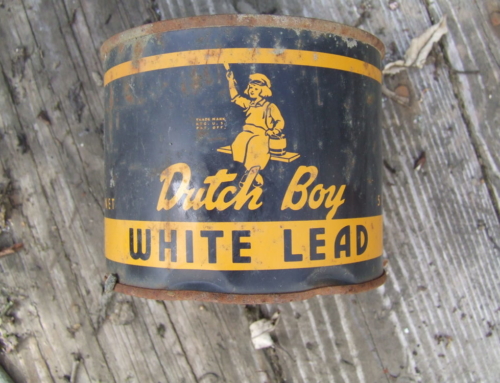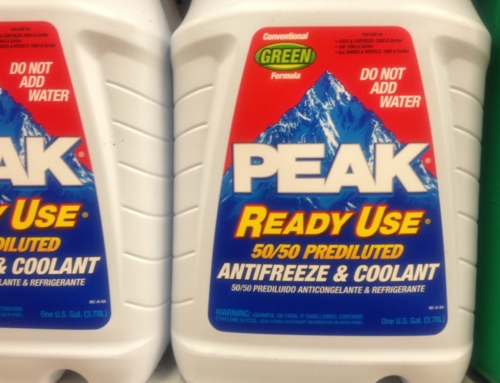If you have any reason to suspect your pet has ingested something toxic, please contact your veterinarian or one of the other resources listed:
• ASPCA Animal Poison Control Center 24-hour hotline at (888) 426-4435
• Pet Poison Helpline® 24-hour animal poison control service at (855) 764-7661
Propylene Glycol
Propylene glycol is found in many household products and has a significant toxic risk if ingested by pets. Of note, it is commonly found in ‘pet-safe’ anti-freeze products. While this form of anti-freeze is less toxic than those containing ethylene glycol, these products still pose a risk to pets if ingested.
Propylene glycol can also be found in RV antifreeze, hair dyes, disinfectants, paints and varnishes.

Signs and symptoms of toxicity: Initial signs of toxicity include depression, weakness, involuntary muscle movements, increased urination, and increased thirst. Low blood pressure, cardiovascular collapse, and seizures can also occur. There is a risk of lactic acidosis and Heinz body anemia (in cats) developing later.
Toxic consumption: In dogs, 9 mL/kg (4.1 mL/lb) can be fatal. There is no established toxic threshold in cats. All incidents of accidental consumption should be reported.
| X-Small Yorkie, Chihuahua |
Small Pug, Boston Terrier, Poodle |
Medium Beagle, Scottish Terrier |
Large Boxer, Cocker Spaniel |
X-Large Retriever, German Shepherd |
XX-Large Great Dane, St. Bernard |
| 1 – 10 lbs. (0.45 – 4.6 kg) |
11 – 25 lbs. (5 – 11.4 kg) |
26 – 40 lbs. (11.8 – 18.2 kg) |
41 – 70 lbs. (18.6 – 31.8 kg) |
71 – 90 lbs. (32.3 – 40.9 kg) |
91 – 110 lbs. (41.4 – 50 kg) |
 |
 |
 |
 |
 |
 |
| > 4 mL | > 44 mL | > 106 mL | > 167 mL | > 290 mL | > 372 mL |
References:
Osweiler, G, et al. (2011). Blackwell’s five-minute veterinary consult clinical companion. Small Animal Toxicoloty. [Kindle version]. Retrieved from Amazon.com
Pet Poison Control is provided free as a public service by the American College of Veterinary Pharmacists. Today we’re asking you to support us with a small donation. If you would like to dedicate your gift in honor or memory of a pet or individual, you will have that option before checkout. Your gift of any amount helps us maintain this resource and make it available to the pharmacy and veterinary communities. Thank you!





